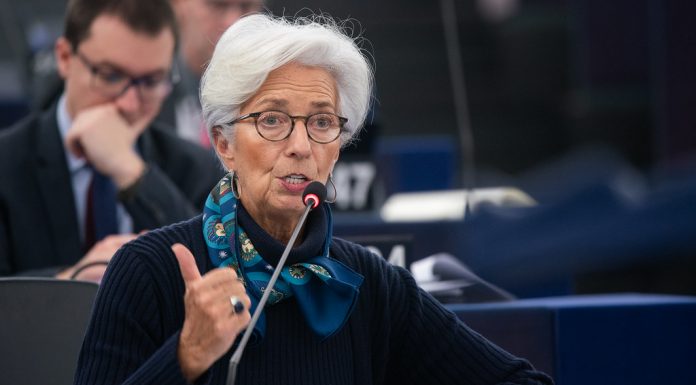
By Cristian Gherasim, a journalist, analyst and foreign affairs expert
While Brussels frets about Ukraine and America, a crisis festers from within
Twenty years on Europe is still trying to come to terms with what happened 20 years ago when the devastating bombings in London claimed 52 lives and shook Britain to its core. In one of the worst terrorist attacks that the continent has seen, Europe still reeling with shock, finds itself again put to the test as security risks mount around its borders but also from within.
From the battlefronts of Ukraine, the turmoil in Gaza and the Middle East Europe’s policymakers have their eyes fixed firmly eastward and westward—war in Ukraine and Donald Trump’s mercurial moods. And now the continents just across the Mediterranean we still rising tensions in N Africa that could easily spill over into Europe. The threat of fundamentalist organization has also been coming from North Africa. North Africa’s mounting troubles are creating a cascade of problems that Europe can no longer afford to ignore. The chaos provides fertile ground for jihadist networks spanning the Horn of Africa and the Sahel. These groups exploit porous borders to coordinate operations, establishing supply lines and safe havens that could soon threaten European interests directly. The risk of dormant terrorist organisations regaining prominence is considerable. As state authority collapses across swathes of the region, extremist groups find themselves with ample space to regroup and refocus their attention on European targets.
Threats from within
The continent’s most pressing security challenge may be very well brewing in plain sight, coming from within – the rising threat of fundamentalist groups that are wearing Europe’s security resources thin.
In May, the French Ministry of interior released a report sounding the alarm about the rise of fundamentalist groups. In that particular case the discussion was about the Muslim Brotherhood and its push for a fundamentalist agenda in France and across Europe. The report warns that European countries could face serious consequences if they do not act. The European Parliament held follow-up discussions in Brussels about the need to designate the Muslim Brotherhood a terrorist organization. French authorities describe the group as a long-term threat to national stability and claim that it works to expand its influence throughout Europe.
"America’s challenges with the Brotherhood are not unique. Most European countries actively monitor the group’s activities on their territory."
Time to get real about the Muslim Brotherhood’s Mideast menacehttps://t.co/mvqKhtBZx5 pic.twitter.com/bUL3U0fA6M
— NY Post Opinion (@NYPostOpinion) July 25, 2025
Set up in Egypt almost 100 years ago, the Muslim Brotherhood advanced into the political arena, aiming to end British colonial control of Egypt. The movement’s self-stated aim is the establishment of a state ruled by Islamic law under a caliphate- most famous slogan is “Islam is the solution”.
Other European governments have responded to France’s alarm. The Swedish government, for example, announced plans to commission its own study into what it calls “Islamist infiltration.” The Muslim Brotherhood’s reach extends beyond France, active in the UK, Sweden, Germany and Austria which became the first EU nation to ban the Muslim Brotherhood. These developments point to a continent-wide challenge that demands a coordinated EU response.
Safety concerns in UK, 20 years on from 7/7
Muslim Brotherhood’s modern incarnation in Europe differs markedly from its roots. Instead of open political confrontation, European branches have embedded themselves in charities, student groups, mosque councils, and advocacy bodies. These organizations often position themselves as representatives of Muslim interests—but officials in London, Paris, Berlin and Vienna increasingly view this as a façade for a deeper political agenda.
A 2015 UK government review, led by former ambassador Sir John Jenkins, concluded that while not directly linked to terrorism in Britain, the Brotherhood’s ideology was at odds with democratic values and, in some cases, conducive to radicalisation. It singled out the Muslim Association of Britain (MAB) with its key figures such as Kamal El-Helbawy, Azzam Tamimi, Osama Takriti and the Muslim Council of Britain (MCB) as organizations with historical and ideological ties to the Brotherhood.
The Brotherhood’s UK strategy has long included building relationships with civil society and political groups. Through local engagement, lobbying efforts, and grassroots mobilization, Brotherhood-aligned groups have sought to present themselves as authentic voices of Britain’s Muslim population.
The COVID-19 pandemic further showcased this adaptability. With public services stretched thin, Brotherhood-linked charities stepped in to deliver food parcels, offer mental health services, and expand outreach. An early day motion in 2020 questioned the rise of Islamic organizations in community leadership roles during the pandemic, warning that some were linked to ideologies antithetical to integration.
Reports by think tanks and investigative outlets, such as the Tony Blair Institute and the Henry Jackson Society have estimated a large budged at the organization’s disposal. According to some sources there are estimates that the Brotherhood’s financial network in Britain is worth between $8–10 billion, spread across charities, trusts, and offshore companies. Authorities have flagged Interpal—a U.K.-based charity—as a key financial node, previously accused of ties to Hamas.
From university Islamic societies to summer camps and weekend schools, the Brotherhood’s reach extends into youth engagement. Organizations like FOSIS (Federation of Student Islamic Societies) are often praised for promoting Muslim identity—but critics argue some events advance narratives that prioritize Islamic politics over pluralistic democracy.
The Brotherhood’s ideology, while rejecting violence in the U.K., promotes political Islam and often casts Western society as morally bankrupt. The Jenkins Review conducted by the British House of Commons Foreign Affairs Committee notes that this binary worldview may act as a “precursor to violence”, particularly when influencing disillusioned youth.
In 2020, the British government reaffirmed that Brotherhood-affiliated groups remain a subject of concern, though no full ban has been enforced. The decision not to proscribe the Brotherhood was based on insufficient direct terror links and concerns about potential legal backlash over civil liberties.
What does Europe need to do?
Across the Channel, governments have taken firmer action. In Austria, the Brotherhood was formally banned in 2021. France launched an expansive report into Islamist separatism in 2024, calling for legal tools to combat Brotherhood influence in schools and local government. Germany, meanwhile, monitors around 150 mosques for possible Brotherhood ties, with the domestic intelligence service labeling it a long-term security concern. By contrast, Britain has adopted a more cautious approach—monitoring without proscription. A 2020 policy shift reaffirmed the Brotherhood as a subject of government interest, but attempts to criminalize its operations have faced legal and political hurdles.
As Europe wrestles with the tension between upholding liberal freedoms and preventing ideological subversion, the Brotherhood continues to walk the fine line between legality and ideology. In the UK, the legacy of 7/7 reminds citizens of the catastrophic consequences of ignoring extremist signals. Yet as the Brotherhood shifts from overt radicalism to covert institutionalisation, the challenge becomes harder to define—and regulate.
"Onder de religieuze instellingen in België zijn er een tiental moskeeën die rechtstreeks verbonden zijn met de Moslimbroederschap, zo vermeldt het Franse rapport zonder ze bij naam te noemen. We kunnen echter de Al Khalil-moskee in Molenbeek noemen, die verbonden is met de…
— Pieter Cleppe (@pietercleppe) July 15, 2025
Disclaimer: www.BrusselsReport.eu will under no circumstance be held legally responsible or liable for the content of any article appearing on the website, as only the author of an article is legally responsible for that, also in accordance with the terms of use.












